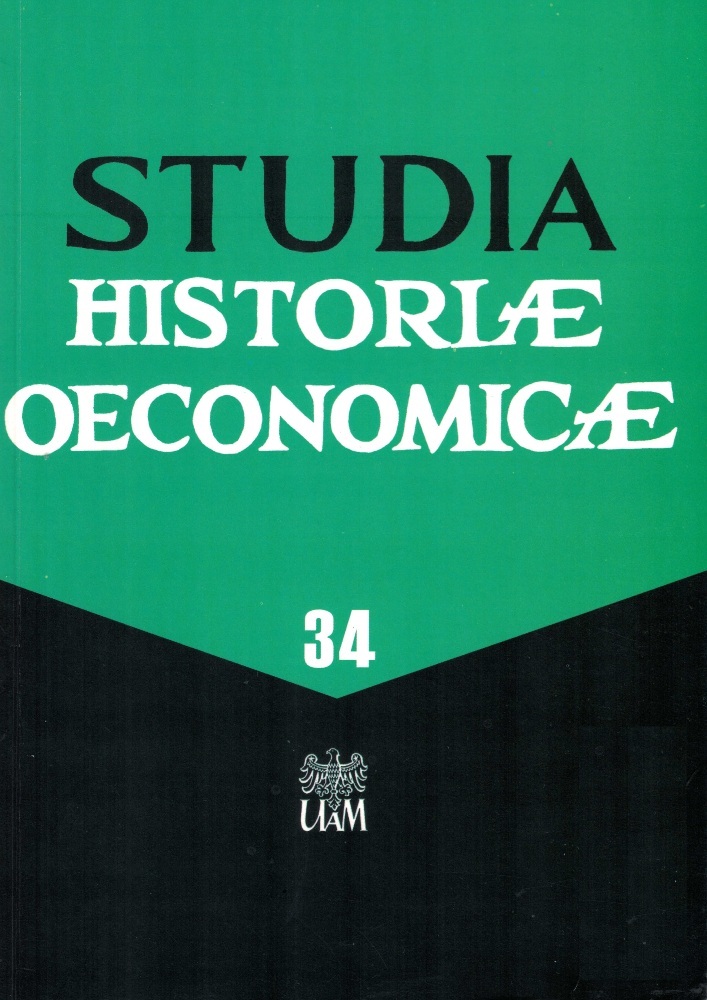Abstract
Financial crime was one of the recurring themes in crime stories written in the period of socialist Poland. The writer who first undertook this subject was Leopold Tyrmand in his book “The Man with the White Eyes” (1955). The publication of this book is considered one of the symptoms of the cultural “thaw” and the end of real socialism. Tyrmand shows crime which develops when the state, cooperative and private businesses meet, but also the corruption and powerlessness of Citizen’s Militia. During Władysław Gomułka’s administration (1956–1970), this problem often recurred e.g. in the books written by Anna Kłodzińska and Barbara Gordon. Very often the villain was the “fraudulent director”. Both the meat scandal and the leather scandal were described in crime novels. Edward Gierek’s administration (1970–1980) was the time when the theme of financial crime was abandoned, but it returned after the introduction of martial law in 1981. This time, it was pointed out that it was the previous administration that had committed frauds. Crime novels accurately described the economic abnormalities of socialist Poland, the hampering of individual initiatives and the omnipresent corruption, but they also reflected the state’s policy towards the people in power who were illegally gaining wealth.
References
Barańczak. (1975), Polska powieść milicyjna. Dominacja funkcji perswazyjnej a problemy gatunkowe [Polish “Militia novel”. Domination of the persuasive function and the problems of the genre] [in:] Stępień M. (ed.), „W kręgu literatury Polski Ludowej” [The literature of socialist Poland], Wydawnictwo Literackie, Kraków, p. 270-316.
Eisler J. (2014), Siedmiu wspaniałych. Poczet pierwszych sekretarzy KC PZPR [The Magnificent Seven. The First Secretaries of the Polish United Workers’ Party Central Committee], Wydawnictwo Czerwone i Czarne, Warszawa.
Fik M. (1989), Kultura Polska po Jałcie. Kronika lat 1944-1981 [Polish culture after Yalta. The chronicles of the years 1944–1981], Polonia Book Found LTD, London.
Jarosz D., Pasztor M. (2004), Afera mięsna: fakty i konteksty [The meat swindle: facts and context], Centrum Edukacji Europejskiej, Toruń.
Jastrzębski J. (1982), Czas relaksu. O literaturze masowej i jej okolicach [Leisure time. About the literature for the masses and its surroundings], Zakład Naukowy im. Ossolińskich, Wrocław.
Leszczyński A. (2000), Sprawy do załatwienia. Listy do >>Po prostu<< 1955-1957 [Things to be done. Letters to the “Po prostu” magazine 1955–1957], Wydawnictwo Trio, Warsaw.
Lewandowska A. (2006), Wywiad z Heleną Sekułą [An interview with Helena Sekuła], [in:] Lewandowska A. et al. (ed.), “Druga seta” [The second hundred], Wydawnictwo Mordownia Wielki Sen, Warszawa, p. 298-299.
Modrzejewska B. (2015), Prezesi. Oni rządzili TVP [Presidents. The bosses of the Polish television], The Facto, Warsaw.
Paczkowski A. (1998), Pół wieku dziejów Polski 1939-1998 [Fifty years of Polish history 1939-1989], Wydawnictwo PWN, Warsaw.
Rolicki J. (1990), Gierek Edward: Przerwana dekada. Wywiad rzeka, [Gierek, Edward: an interrupted decade. An interview], Wydawnictwo Fakt, Warsaw.
Skotarczak D. (2012), O powieści milicyjnej pozytywnie, [About the “Militia novel” with optimism] [in:] Stańczak-Wiślicz K. (ed.), “Kultura popularna w Polsce w latach 1944-1989” [Popular culture in Poland in the years 1944-1989], Instytut Badań Literackich PAN, Warsaw, p. 177-188.
Skotarczak D. (2015), Polska powieść kryminalna w okresie odwilży. Próba charakterystyki, [Polish crime novel in the period of the “thaw”. A tentative description.] “Literatura Ludowa” [People’s literature] no. 6, p. 27-36.
The record of the discussion on the radio about “The Man with the White Eyes” by L. Tyrmand (1956), “Radio i świat” [The radio and the world] no. 18, p. 13.
License
Copyright (c) 2016 Dorota Skotarczak

This work is licensed under a Creative Commons Attribution-ShareAlike 4.0 International License.





